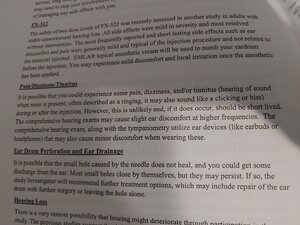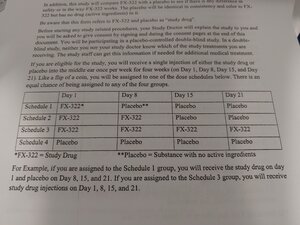- Sep 21, 2016
- 1,051
- Tinnitus Since
- 2011 - T, 2016- H, relapsed 2019
- Cause of Tinnitus
- noise-induced
If middle ear hyperactivity is a consequence of inner ear damage then I suppose it's reasonable to speculate that FX-322 could help. Repairing the inner ear could potentially have a positive downstream effect on middle ear activity if it arises secondary to inner ear trauma. That said, I feel like I don't know enough about TTTS to say - I feel like TTTS seems to fall under the same category as pain hyperacusis in being relatively poorly understood. It definitely appears that TTTS is something experienced mostly by people who have had an acoustic trauma.Anyone think FX-322 or regenerative medicine may help with Tonic Tensor Tympani Syndrome (TTTS)?
I know it's primarily a middle-ear issue, but could it have any relationship with inner-ear damage?

 Member
Member Any idea? Besides the age-related thingy of course.
Any idea? Besides the age-related thingy of course.


